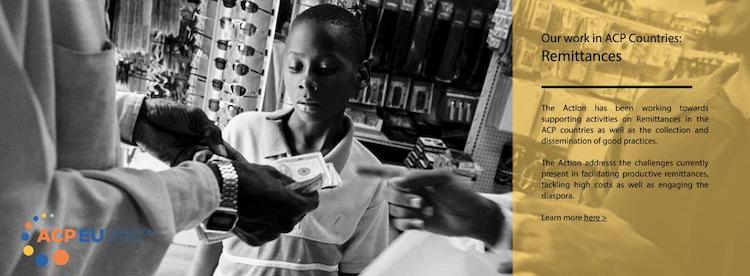By Jeffrey Moyo
CHIPINGE, Zimbabwe (IDN) – When he fled from his country’s 1994 genocide, now 63-year old Iradukunda Nyaruyonga, a Rwandese national had four teenage children whose education he thought had been prematurely ended by the civil war in the home country. Now, despite having grown up in a refugee camp, Nyaruyonga’s children are counted amongst great achievers domiciled in Zimbabwe.
Two sons of Nyaruyonga, a high school teacher in his own right back in Rwanda, are now medical doctors while one of the daughters is now a bank manager, with another one a radiologist at a top private hospital in Harare, the Zimbabwean capital.
Further down in South Africa’s Johannesburg city, is also 37-year old Kandagona Tambwe a migrant from Mozambique, who says, he has made strides to build his life in a foreign land.
In South Africa, Mozambique and many other African countries including Zimbabwe, the ACP-EU Migration Action – of the formal association of regional African, Caribbean and Pacific (ACP) Group of States; and the European Commission – has over the years (from June 2014 to August 2019) provided technical assistance to ACP Governments and regional organizations and supported grass-roots projects with / by Non-State Actor projects.
The project has been funded by the European Union (EU), supported by the ACP Secretariat and implemented by the UN Migration – International Organization for Migration (IOM).
Subsequently, with the ACP-EU-IOM joint action network leaping to the rescue of refugees and migrants like Nyaruyonga of Rwanda and Tambwe of Mozambique, has helped lessen life’s challenges for them.
“I’m living here in Zimbabwe as a refugee, but all my children are now educated,” Nyaruyonga told IDN. Mozambican migrants like Tambwe are grateful too.
“Organizations like the ACP, EU and IOM , which I guess are working with the UN Refugee Agency UNHCR have made sure people like myself get asylum status too and that has enabled me to live and earn a living here in South Africa,” Tambwe told IDN.
EU relations with the ACP group date back to the 1975 Lomé Convention, revised on four occasions until 1989. This was replaced by the Cotonou Agreement in 2000, revised in 2005 in Luxembourg and in 2010 in Ouagadougou, and covers EU-ACP relations until 2020.
The ACP-EU Dialogue on Migration and Development was launched after the 2010 Quagadougou revision of the provisions of Article 13 on Migration of the Cotonou Agreement of 2000.
Subsequently, in June 2010 the ACP-EU Council released a Joint Declaration on Migration and Development, which identified three pillars for increased cooperation and dialogue- migration and development, legal migration and irregular migration.
Yet again, in 2010 the ACP Observatory on Migration was launched by the ACP Secretariat, the EU and the IOM to support ACP countries’ policymaking efforts through the facilitation of improved and updated information on South-South migration.
Now, with Africa’s refugees and migrants benefitting from initiatives by ACP-EU, development experts like Evans Mwansa of Zambia told IDN that “the ACP-EU is the utmost liberal partnership pact between developing countries and the EU”.
In fact, ACP-EU has joined forces with the UN refugee agency UNHCR in a bid to combat refugee and migrant challenges blighting the African continent.
According to Kingston Nyakurukwa, a Zimbabwean independent economist, “amidst rising economic inequities that have over the years rocked Africa, pushing many Africans to risk their lives traveling to other countries in search of peace and economic greener pastures, ACP-EU has come in to assist in such circumstances”.
As such, Nyakurukwa told IDN, “ACP-EU has stepped in to help in other economic and social spheres in order to slow down the movement of economic migrants and refugees from Africa”.
The help by ACP-EU to African countries comes at a time the global refugee situation has continued to occupy center stage in many parts of the world. With the bulk of refugees flocking from Africa to the developed world, in 2016, Europe faced a considerable number of refugees and irregular migrants, a situation that led to heated debates among policymakers.
But in 2017, ACP-EU’s migration expert Anna Knoll, headed a programme dedicated to migration which aimed at tracking African and European progress in addressing migration issues and push for more action and honest dialogue from both sides, Africa and Europe.
Knoll is head of Migration Programme at the European Centre for Development Policy Management (ECDPM) in the Netherlands.
For many African migrants and refugees, ACP-EU has over the decades promoted concrete action in the organizations’ areas of priority with the aim of improving the conditions of migrants, their families and origin or host communities, including vulnerable groups linked to the migration process, such as the children.
For migration experts like South Africa’s Senzeni Dlamini based in Pretoria, the migration and refugee crisis is not only an African problem.
“Images of migrants from African countries being sold off as slaves in other countries like Libya demonstrate the urgency and severity of the two issues of migration and refugees for both the African continent and Europe,” Dlamini told IDN.
In November 2018 in Brussels, ACP chief negotiator and Togolese foreign minister, Robert Dussey, said migration was set to become a key point across Africa and Europe, “but it must not circumvent the relevance of the debate or negatively impact the terms of our future cooperation agreement”. [IDN-InDepthNews, 27 October 2019]
Photo: Somali refugee Barwako Noor Abdi feeds her children at a temporary shelter in Bur Amino, Ethiopia. © UNHCR/Eduardo Soteras Jalil.
IDN is flagship agency of the International Press Syndicate.
facebook.com/IDN.GoingDeeper – twitter.com/InDepthNews

